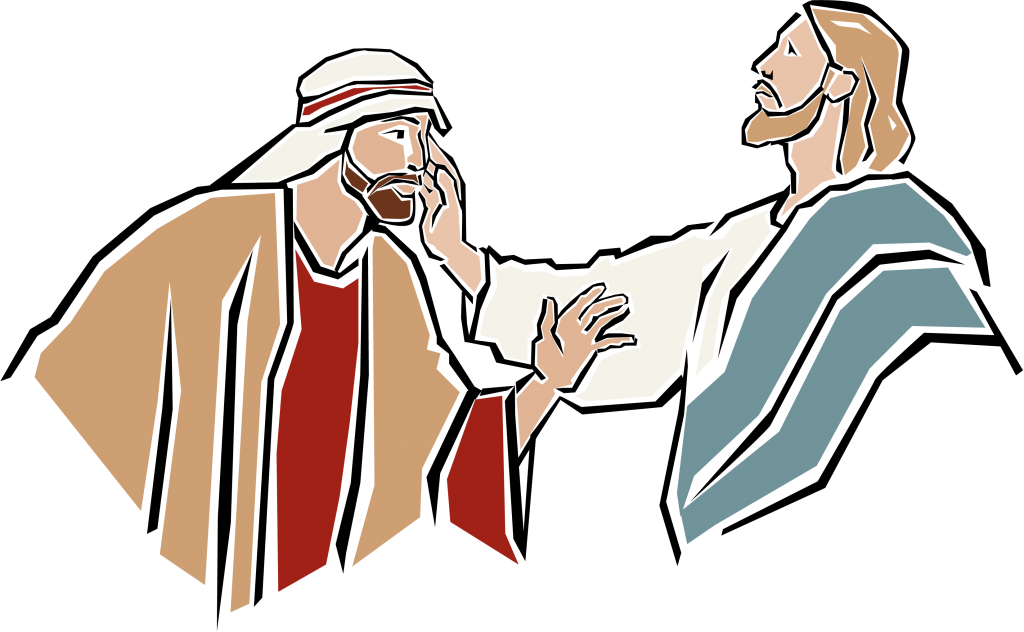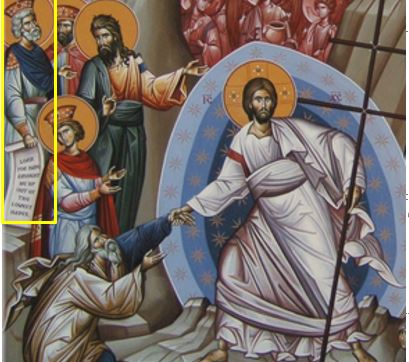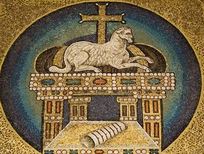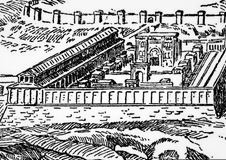Earlier, tongue-in-cheek, I suggested that what mission parishes needed was miracle workers, otherwise known as mission priests. Having been a mission priest, I can assure you I was not, nor am nor shall ever be a ‘miracle worker’. Those are in exceedingly short supply. And most priests have been asked to, or even expected to, perform miracles. Missions are a special case.
Empowered?
The Lord Jesus empowered his disciples to heal the sick, raise the dead, cleanse the lepers, cast out demons, etc. (Matt. 8:10). That’s a pretty tall order – downright impossible outside of the working of the Holy Spirit. But I think it’s clear from the scriptures, not only in the miracles of Jesus, but also the early propagation of the Gospel in the early Church, that ‘signs and wonders’ (Mk. 16:20) accompanied the apostles in their preaching of the Gospel or the Risen Lord and the establishment of the churches where they went. In an earlier example in this series, the claim of Jesus of His authority to forgive sins was validated by his raising of the Paralytic (Mk. 2)
Recently, I’ve heard two separate priests report ‘miracles’ in their mission congregations. Today, despite our sensationalistic tendencies to exaggerate our words for effect (to get clicks), there are miracles happening in people’s lives, like the ones that I mention from the experiences in mission parishes. These miracles are often quiet ones, the healing of human lives that takes place gradually rather than suddenly. Men and women repent of life-long patterns of sinful behavior. Others enter the spiritual coliseum where they do battle with their passions and desires, like pornography or drug abuse and emerge victorious. Sometimes, the miracle is something as simple as a quieting of the soul, an experience of real peace or joy, to someone who has only known confusion and turmoil – for decades. Penance will do that. When the ministries of the Church are put into play, healing takes place. When the Gospel is preached, the words bring truth to people’s minds and hearts and convey the presence of Christ by grace. As converts are baptized, the demons are put to flight. In short, what Jesus commanded His disciples to do, they’re doing.
As a priest, I usually have known my ‘vocation’ in terms of what happens in Church, through ritual actions like celebrating the Liturgy. Often, what we do is similarly routine – from preparing coffee hour to teaching Church school. The essence of a miracle is that it exists outside of the normal routine or emerges in the midst of the normal routine. It is inexplicable and can’t be planned or controlled. It is a sign of God’s work. So we need to look closely at the work we do, so that we can see that it’s really God Himself who is sovereign in transforming the world as we know it. The fruits of the restoration reveal His grace and healing.
Needed – Miracle Workers.
The mission priest is called to be a miracle worker, not only the miracle of changing the Bread and wine into the Body and Blood of Christ, but to borrow the words of the later Fr. Alexander Schmemann, ‘to change the people of God into the Body and Blood of Christ.’ A mission priest’s calling is to go where there is ‘nothing’ and allow himself to be led by God in the creation or revelation something wonderful, (=’full of wonder’) to His glory.
A mission however, in our day, is not usually like that of the apostolic age. It is infrequent that a minister of the Gospel or mission priest will go to the nearest Mars Hill like St. Paul, and just start preaching, drawing together a group of believers.[i] In fact, that mode was not always fully operative in apostolic times. Usually, the apostles went to the cities, people and places where a foundation of faith was, in part, already established – Jewish communities where a knowledge of the Law and Prophets was already somewhat in place. They would talk about Jesus as Messiah in these Jewish communities. The mission to the Gentiles, first by St. Peter, then Paul and later confirmed for all of the Apostles at the Council of Jerusalem, was a later development, but even then, the Jewish communities were often the Apostle’s starting point. While beyond the scope of this article, it would be interesting to explore the amazing ‘networking’ talent that St. Paul leveraged in his ministry, through the contacts he had throughout the known world.
Start up
Similarly, a mission priest usually doesn’t start with ‘nothing.’ Rather, he is usually sent by a Bishop who has been contacted by believers in the area seeking the establishment of a mission community. Often the people of these new missions have common characteristics. Years ago, when I served in Texas, many of the parishioners were people who were relocated to Texas when the corporate centers for the petrochemical industry in the Northeast moved there. Today, the first contacts in the Orthodox ‘mission field’ iare often refugees from a given area who settle in a region. Our Ukrainian Orthodox Church has recently formed several missions in the southern US with Ukrainian refugee groups who are seeking friends and support in a new land. This is exactly the same pattern that started many of the UOC (and Greek, and Romanian, and Serbian, etc.) Churches in North America over 100 years ago.
But what of the mission to Americans who have no such ethnic roots? Sadly, but in a strangely extraordinary blessing of God, many who seek a missionary Orthodox church today are intellectual and spiritual refugees who are fleeing the falsehoods and spiritual confusion being sown by radical un-Christian, leftist teachings and moral conduct fostered by decaying denominations in which they formerly worshipped until their conscience couldn’t take it anymore. They seek to become converts to Orthodoxy in the process of this search, finding like-minded people with whom they try to form convert Orthodox congregations.[ii]
The miracle experienced by these Christians is still a miracle – as their eyes are opened to a new transformative depth of the personal faith through the fundamentals of Orthodoxy like Liturgy, dogma, iconography, liturgical music, fellowship, ministry, etc. Often that miracle takes place out of the personal struggle of those who then reach out to the Church.
Can He Deliver?
So, the priest serving the new mission faces serious challenges. In some cases, often where there is no Orthodox presence at all, the startup mission may consist of members who have been wounded badly, spiritually in their former church context and need healing. In the case of Ukrainian refugees[iii], fleeing a war, they bear other wounds, often worse, including PTSD, deep challenges to their personal faith and even physical wounds from the bombing of their homeland. They seek healing and refuge, in the Church.
The Liturgy and Communion in Christ is where we first taste such healing because Christ is present. Missions are places to meet Christ – the Miracle Worker. The Sunday gathering, celebrating His Resurrection becomes the home base for our encounter with Him.
Still, problems can arise at the weekly Liturgy, when recent immigrants may know only their native language and littler or no English. American-born people seeking conversion to Orthodoxy will only know English. So rather than a fully unifying, accepting experience of fellowship and love, half of the time, at least one or the other group may not even know a word being said. Under such circumstances, communication is difficult. Can the mission priest perform the miracle of uniting people with different languages, cultural experiences, and agendas (including political ones). Only Christ can – while bringing peace to people who may bear resentments about divisive language a problem that has plagued Orthodox communities in the US for 120 years.
The miracle of the Eucharist renders Christ present and hence all things are possible.(Mk 10:27) And indeed, in theory that is the case. But Christ must be present to address difficult pastoral needs as well. For example, as a priest visiting a dying immigrant Orthodox Christian in a hospital, who maybe hasn’t been to church in decades. Perhaps you don’t understand any thing he says, if he can speak or hear at all. Only Christ can bring what is needed in those situations. And the gestures and movements of the liturgical prayers ‘speak’ a language of their own, rendering Christ present.
An English-speaking priest will seemingly have a big edge over immigrant priests in serving American Protestants (or Roman Catholics) who may show up in the Orthodox mission with many questions. But even then, it’s hard to truly understanding someone whose faith experience was forged in a very different furnace that Orthodoxy. So, a priest may have a difficult time helping her to discern what is spiritually sound, biblical and consistent with Orthodox Christianity juxtaposed to what she may have learned from her youth from a piuos grandmother in her little church growing up. This can be complicated by pastoral situations where family dynamics or other issues, perhaps multiple marriages/blended families or homelife situations have forged a mindset very different from even post-modern Protestantism or Catholic teaching about things like Faith, relationships, marriage, family, and childbearing. And today we must at least mention the wreckage wrought in the hearts of young people because of the sinful social practices and ‘norms’ fostered by the sexual revolution and gender misappropriatio leading to much inner confusion.
Managing Miracles?
The seemingly unfortunate thing for those of us undertaking the tasks of being a mission priest is that miracles are out of our control!
That is the status quo of the mission priest (and probably all priests). You just don’t have the goods. You aren’t clever enough to even figure it out and if you could, you couldn’t get it done when execution rears its ugly head. And God’s solution is the miracle – that which beyond our human power, that either eliminates the problem, lessens it, or makes it feasible to ignore it until it goes away.
Miracles take a personal faith by the priest. Sometimes the hardest thing to believe is not that God loves us, or can work miracles. Clearly, He has worked miracles since apostolic times, and we’ve seen what others have done – other communities are filled with miracles. God will work in their situation – but does he love me and will He work within our community? The Bible and Church history have countless accounts of miracles – but is one more going to happen – here and now – when we need it?
This is one of those fundamental questions that a pastor needs to ponder, daily and in prayer. If he gets to the point were he doesn’t believe that ‘one more is going to happen’ he’s done. Faith is at the heart of every dimension of Church life, and the biblical narrative and Church history witnesses (martyrs) show us how it works, and it’s usually not in the way that we human servants called to ministry expect, anticipate, calculate or even want.
So, the Seminary is the ‘seed bed’ of miracle workers, and newly matured, ordained and dispatched they go into a dark, even demonic and needy world, seeking to bring the light of Christ. So maybe one of the courses in Seminary needs to be Miracles 101. Or maybe at least a couple of classes on how discern how God works in the local parish and how the priest must be attuned to that?
Miracles are a necessity –not optional.
[i] Perhaps the exception is the ‘ Willard Preacher’ an Orthodox layman who preaches the Orthodox faith in a very direct way on the campus of at Penn State University. https://www.collegian.psu.edu/news/penn-state-christians-divided-on-willard-preacher-s-approach-to-faith-spreading-the-gospel/article_2094f334-c203-11e8-9d7f-4f94b12c444b.html
[ii] The use of the term ‘convert’ must be done with a sensitivity to the realities of the lives of the people involved. Those Protestants or Roman Catholics who find themselves seeking to live out their life of Faith in Christ in the Orthodox Church, in a mission parish, are often fleeing the false Christologies, liturgics, ecclesiology or moral teachings of their prior church communities. The issues of perversion of Christian teachings on sexual morality are especially troubling. These ‘converts’ are not new to Christianity – they have a knowledge of the teachings of Christ, scriptures, morality, etc. and often are themselves baptized. They are being ‘converted’ to Orthodoxy because they are Christians already. Like all Orthodox Christians, God has been at work in their lives from their very creation, and perhaps through moments of grace like Baptism in the Trinity, or perhaps founded in sound parenting or provided by strong religious teachers or the saintly examples of believers in Christ whom they have watched and set their hearts on imitating. .
[iii] Understanding the experience of the Church ministering to Serbian, Bosnian and Kosovar refugees from the conflicts two decades ago could be helpful in this regard.








